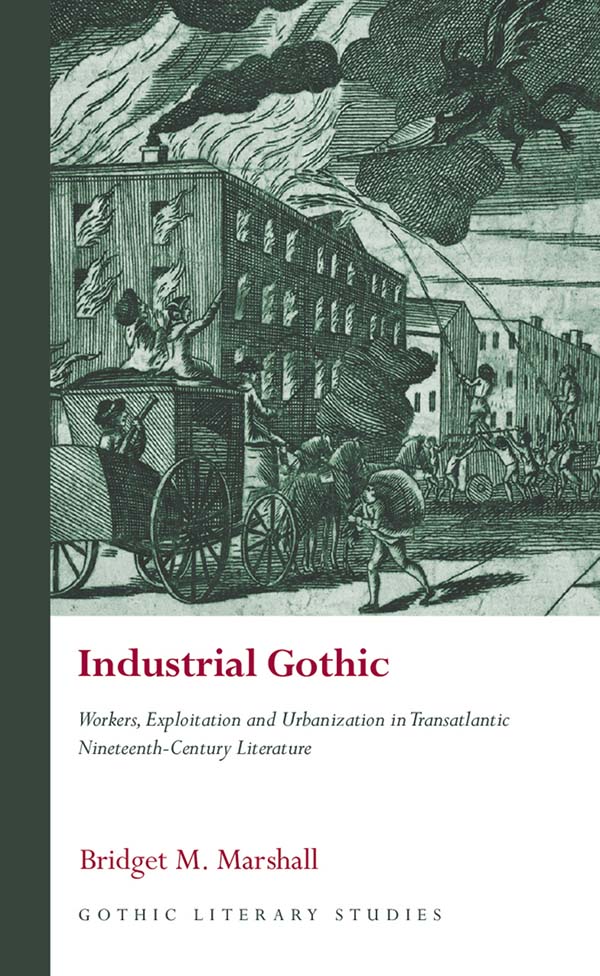Industrial Gothic
Workers, Exploitation and Urbanization in Transatlantic Nineteenth-Century Literature
Author(s) Bridget M. Marshall
Language: English
Genre(s): Literary Criticism
Series: Gothic Literary Studies
- June 2021 · 288 pages ·216x138mm
- · Hardback - 9781786837707
- · eBook - pdf - 9781786837714
- · eBook - epub - 9781786837721
This volume carves out a new area of study, the ‘industrial Gothic’, placing the genre in dialogue with the literature of the Industrial Revolution. The book explores a significant subset of transatlantic nineteenth-century literature that employs the tropes, themes and rhetoric of the Gothic to portray the real-life horrors of factory life, framing the Industrial Revolution as a site of Gothic excess and horror. Using archival materials from the nineteenth century, localised incidences of Gothic industrialisation (in specific cities like Lowell and Manchester) are considered alongside transnational connections and comparisons. The author argues that stories about the real horrors of factory life frequently employed the mode of the Gothic, while nineteenth century writing in the genre (stories, novels, poems and stage adaptations) began to use new settings – factories, mills, and industrial cities – as backdrops for the horrors that once populated Gothic castles.
List of Illustrations
Acknowledgements
Introduction: Weaving a Transatlantic Gothic Industrial History
Chapter 1: The Industrial Gothic Novel
Chapter 2: Industrializing the Gothic Victim/Heroine: Mill Girls and Factory Girls
Chapter 3: The Carceral Gothic and the Cotton Industrial Complex
Chapter 4: Old and New Industrial Horrors: Monsters and Disabled Bodies
Chapter 5: The Industrial Environment: EcoGothic Horrors
Epilogue: Unravelling the Industrial Gothic


